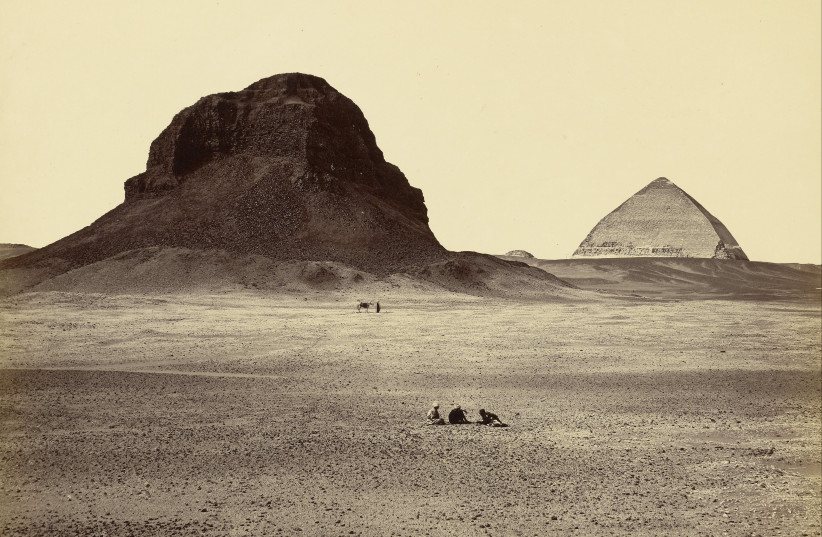An Egyptian-German archaeological mission affiliated with the German Archaeological Institute uncovered a previously unknown mastaba, a type of ancient Egyptian tomb, while excavating an ancient cemetery.
The tomb dates back to the country’s Old Kingdom (c. 2700 BCE - c. 2200 BCE) more than 4,000 years ago.
It contains inscriptions and representations of scenes from daily life, such as grain threshing, ships sailing on the Nile river, and the marketplace.
Such scenes are unusual in the mastabas of that area, an ancient pyramid complex and necropolis (cemetery) called Dahshur.
The structure is built of mudbrick and was made for a person named “Seneb-Neb-Af,” as well as his wife “Idet,” dating back to the end of the Fifth Dynasty and the beginning of the Sixth (around 2300 BCE.)

Tomb belongs to a significant person in the royal palace
The inscriptions on the tomb indicate that Seneb-Neb-Af held several positions in the royal palace, while Idet held the titles “Priestess of Hathor” and “Lady of the Sycamore.”
The finding is in line with recent excavations in the area, which have focused on the tombs of priests, administrators, and statesmen.
Dr. Stefan Seidlmayer, head of the archaeological mission that excavated the mastaba, said that the mission will continue excavating the site, and that more work will be done to clean and document the mastaba’s inscriptions.
